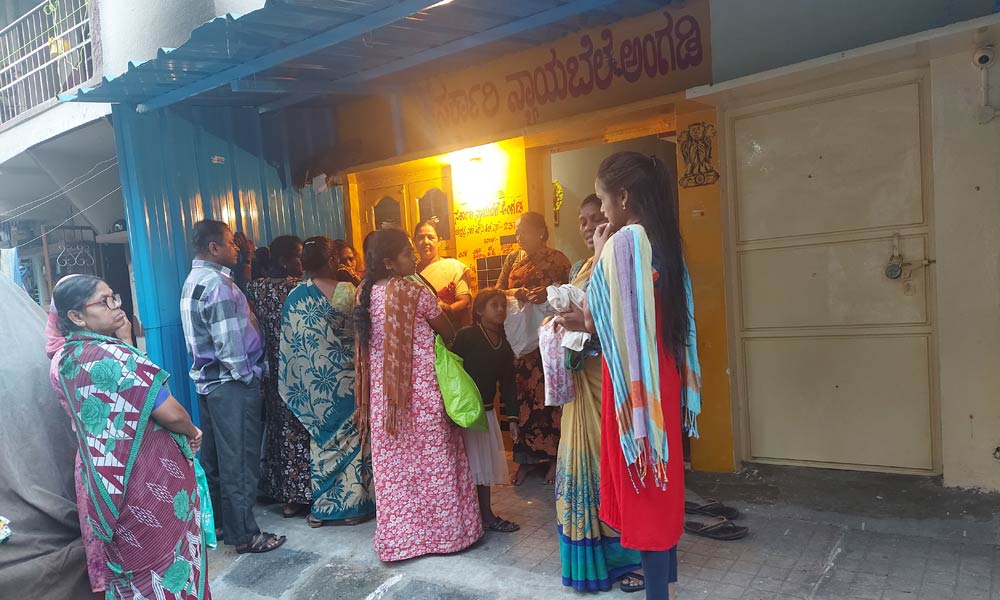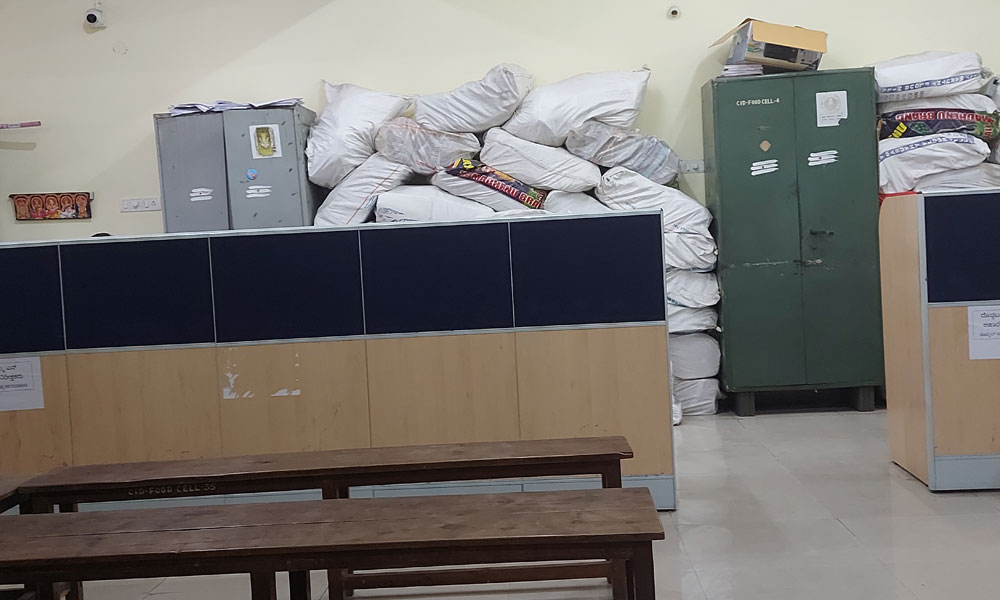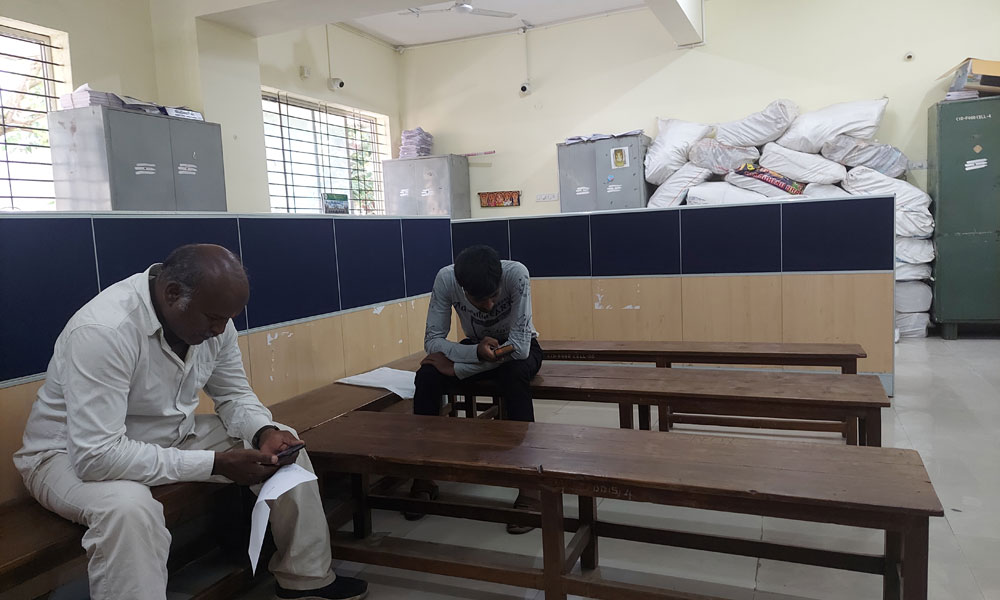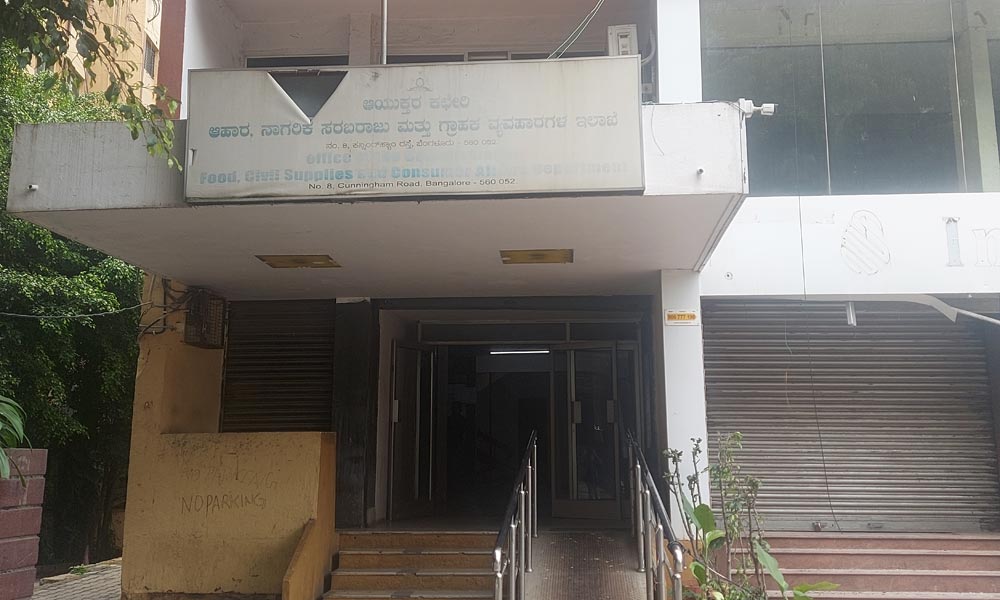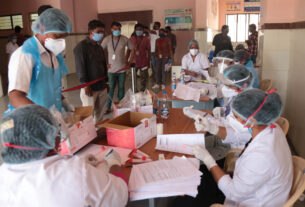Lack of awareness of the One Nation One Ration prevents migrant workers from receiving subsidized ration in the city.
BENGALURU, Oct.20 Migrants still face problem in procuring subsidized ration despite the implementation of One Nation One Ration Card.
Suresh, a migrant from Isri, Jharkhand, said, “It is very difficult to live here. I do not have any access to ration therefore, I cannot feed my children and wife; not a single meal.” He said that whenever he visited Public Distribution Shops or ration shops, managers at the shop said this food was not for him and was only meant for workers belonging to Bengaluru.” He remarked, “If I was not in an urgent need of work, I would have never left my village and come here because it is difficult to fill my stomach here.”
Nagraja, Manager at Lakkasandra Public Distribution System (PDS) said, “It doesn’t matter if we are aware of the scheme or not, I know the scheme, still I cannot help migrants because the government says, ‘first we have to accommodate the needs of our workers then we will look after migrants.’”
Shakila Bano, who came with her husband from Bijnor, Uttar Pradesh said, “My husband got a cleaning job in railways. We were so happy about his job and excited about moving into a big city. It is after we shifted here that we realized it is hard to survive in this big city, because with such a low salary, my husband cannot run the household.” She added her husband was not aware of such a scheme for ration.
Even PDS managers are unaware of the scheme. Gangadhar Y Kumar, Manager at PDS shop in Bommanhalli said, “I have no knowledge of this scheme. I only know that my job is to provide ration to those who come with proper ration cards.”
Gyanendra Kumar Gangwar, IAS, Additional Director, Office of Food Commissioner said, “PDS managers are very well aware of the scheme, but migrants lack awareness about such schemes. There are linguistic issues as well, because of which they are hesitant in approaching government authorities.”
He further said that to solve this issue the Department has started awareness programs in multiple languages especially at construction sites, where migrants are generally employed. Sometimes due to large traffic on the site the working of it gets slow down due to which migrants could not properly avail the facility of the scheme.
Raja, a migrant from Katra, Bihar said, “My ration card is linked with my Aadhar card which is required under the scheme. Yet, the food department says ‘you do not have complete documents, proof of residence, etc., so we cannot allow you to take ration from our PDS shops.’”
However, Rathna N., Food Inspector, Office of Commissioner of Food and Civil Supplies, Bangalore (South) said, “The Department is working towards solving the issue of portability. It will take time because currently the software is not updated, therefore ration shops do not have electronic point of sales (ePoS) devices at Fair Price Shops.”
One nation One ration Card was implemented under the National Food Security Act, 2013. The objective of the scheme is to make food security portable throughout the country. It allows migrants to get food grains from any Fair Price Ration Shops.
Chitra, program coordinator of Association for Promoting Social Action, NGO working for the upliftment of the migrants, said, “Migrants live in deplorable conditions. There are days when they have no food to feed their children. The scheme one nation one ration card could be beneficial for them, but state governments don’t really work in this direction. Sometimes, they just give rations to anyone only to fulfill targets.”
Dr. S.Y Surendra Kumar, Professor of Political Science, Bangalore University said, “The scheme has lot of leakages, for example, migrants do not stick on one place; there is misuse of technology on part of the Government, where ration is given to a person who is not even a ration cardholder and there is also a problem of duplication of ration cards.”
He also said the scheme might be good but only if it was implemented after a proper scientifically proven study by the Parliamentary Committee.

